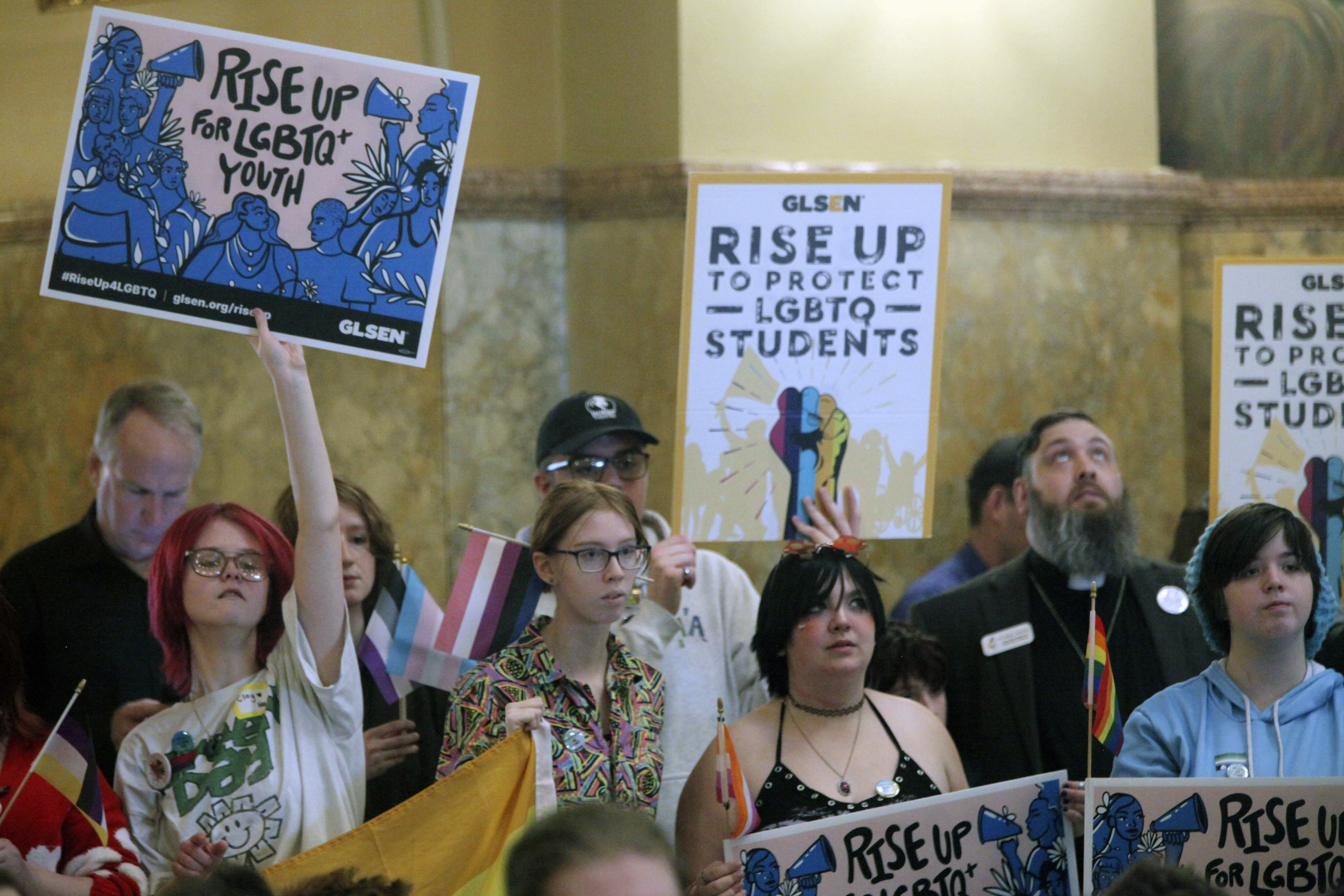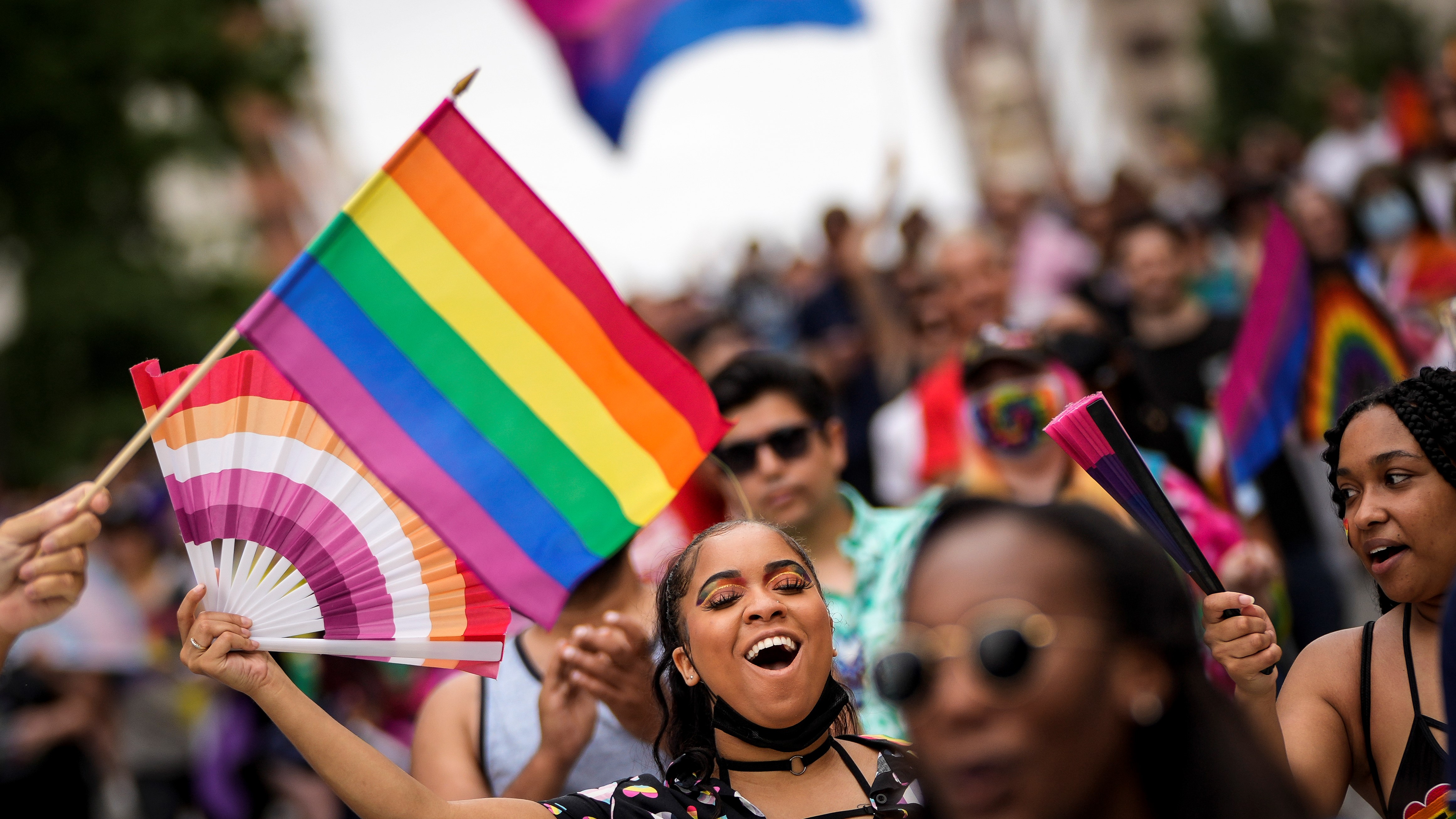
Monday, March 11, the Long Island Roller Rebels, a women’s roller derby league, asked New York’s highest court to declare that a Nassau County order banning female sports teams with transgender athletes from using county facilities is discriminatory and violates state law.
A women’s roller derby league has asked a New York court to invalidate a Republican official's order banning female sports teams with transgender athletes from using county facilities, saying it violates state law.
The lawsuit, filed Monday in state court on behalf of the Long Island Roller Rebels, argues that the state’s human rights and civil rights statutes explicitly prohibit discrimination based on gender identity.
It’s the latest salvo in a battle over an executive order issued Feb. 22 by Nassau County Executive Bruce Blakeman that covers more than 100 athletic facilities in the densely populated county next to New York City, including ballfields, basketball and tennis courts, swimming pools and ice rinks.
The order requires any teams, leagues or organizations seeking a permit from the county’s parks and recreation department to “expressly designate” whether they are for male, female or coed athletes.
Any teams designated as “female” would be denied permits if they allow transgender athletes to participate. The ban doesn’t apply to men’s teams with transgender athletes.
“This cruel policy sends the dangerous message that trans people don’t belong in Nassau County,” Amanda “Curly Fry” Urena, a member of the Roller Rebels, said in a statement. “We hope the court sees this policy for what it is — transphobic and unjust — and makes sure Nassau County is a safe space for trans, non-binary, and gender-expansive people.”
Last week, Blakeman filed a lawsuit asking a federal court in New York to affirm that the order was legal after state Attorney General Letitia James warned him in a “cease and desist” letter that the ban violated New York’s anti-discrimination laws. Spokespeople for Blakeman and James didn’t immediately respond to Monday requests for comment.
In its lawsuit, which was filed by the New York Civil Liberties Union, the Roller Rebels say they applied Monday for a permit to host a slate of games at roller rinks in various county parks starting next month, as they’ve used the venues in previous years for practices and other events.
But the Nassau County-based league says it expects this year's request to be denied, as it welcomes “all transgender women, intersex women, and gender-expansive women” to participate on its teams.
Get a weekly recap of the latest San Francisco Bay Area housing news. Sign up for NBC Bay Area’s Housing Deconstructed newsletter.
The league, which was founded in 2005 and is a member of the Women’s Flat Track Derby Association, added that it currently has at least one league member who would be prohibited from participating under the county’s order.
The lawsuit states that the league is “now faced with the choice to either exclude transgender women from their league — in direct contradiction to their internal values and state law — or forego access to Nassau County facilities.”
The suit cites the state’s Gender Expression Non-Discrimination Act, or GENDA, as well as guidance from the state Division of Human Rights, which confirms that public accommodations cannot deny transgender people access to programs and activities consistent with their gender identity.
Gabriella Larios, an attorney with the NYCLU, said Nassau County’s order is part of a growing number of attacks on LGBTQ rights nationwide.
Bills banning trans youth from participating in sports have already passed in 24 states, though some have been blocked by ongoing litigation, she said.
“As promised the day this executive order was issued, we’re taking action so that the courts relegate this harmful, transphobic policy to the dustbin of history, where it belongs,” Larios said.



